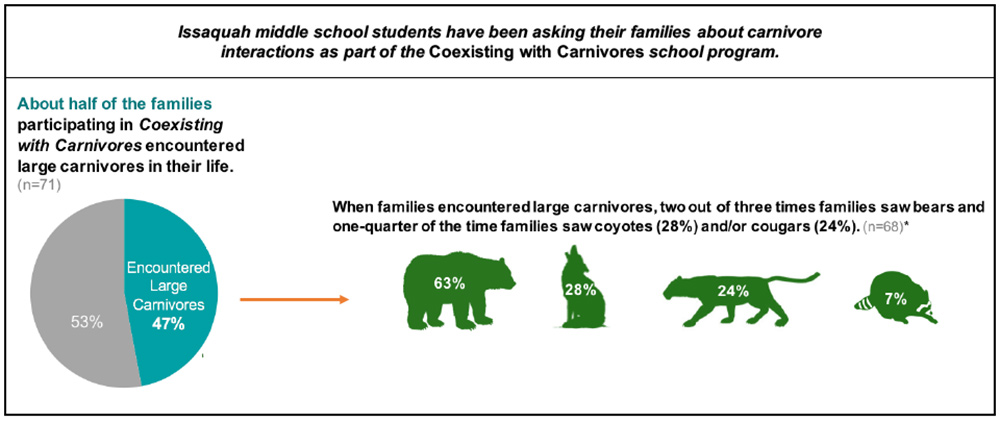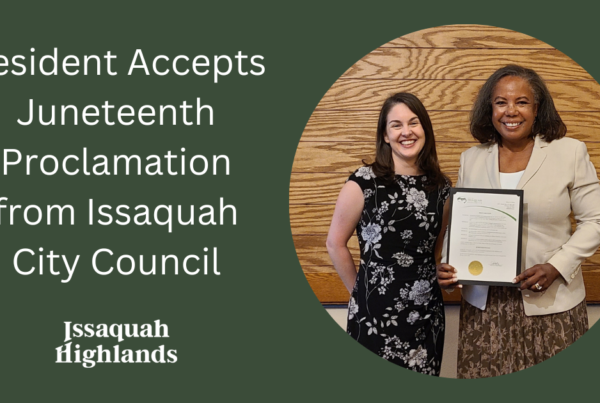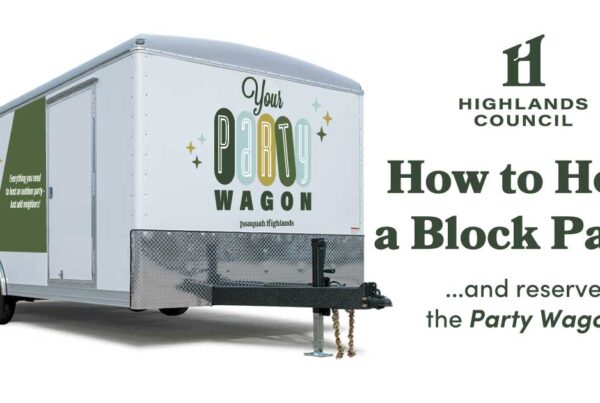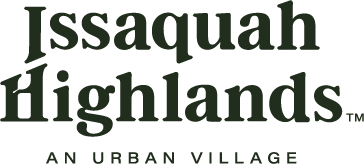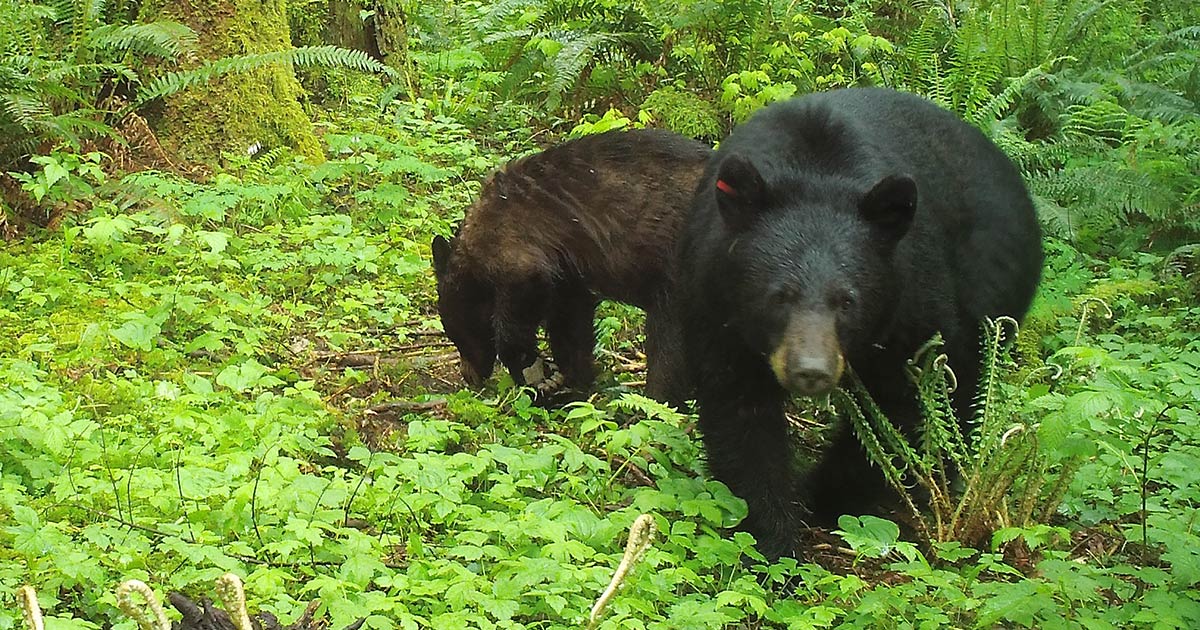
Do you think about hungry bears when you put your trash out at night? Have you heard coyotes howling under the moonlight? Glimpsed a bobcat on nearby trails? If so, you’re not alone. Many Issaquah Highlands residents report increased sightings of carnivores, from bears and coyotes to bobcats and raccoons.
Truth is, wildlife sightings are to be expected around here. The Highlands abuts wilderness that provides us all with wonderful places to hike, run, or explore – the same wilderness these carnivores call home.
For some residents, carnivore sightings may especially cause concern. After all, it’s a little scary to have a bear get into the trash, or a coyote harassing a pet. But a glimpse of a bear in the woods may actually be exciting, a reminder that even though we live in a developed area, wild animals still call this place home.
The presence of carnivores is a sign that green spaces around us remain healthy, vibrant ecosystems. This means carnivore sightings are likely to continue, especially as development continues along the wildland-urban interface in the Issaquah region, where natural areas and humans meet.
But are these carnivore encounters a cause of worry or fear? Or can we coexist peacefully with wildlife?
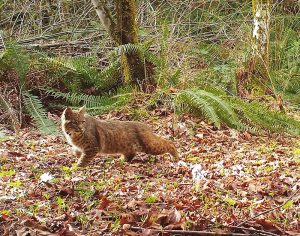 Woodland Park Zoo believes the answer is yes: humans can coexist peacefully with our carnivore neighbors!
Woodland Park Zoo believes the answer is yes: humans can coexist peacefully with our carnivore neighbors!
Enter Coexisting with Carnivores, a three-year community-based program run by Woodland Park Zoo in partnership with the City of Issaquah, Issaquah School District, and the Issaquah Highlands Council. Funded by a generous grant from the Institute of Museum and Library Services (IMLS), Coexisting with Carnivores expands on a successful program the zoo offers in partnership with Issaquah middle schools. The expanded program provides Issaquah residents the opportunity to learn about local carnivores and create community-driven solutions to prevent conflicts with wildlife. Soon, residents will also be able to assist camera-trapping efforts to learn more about the carnivores that frequent our neighborhoods.
Join us at the Coexisting with Carnivores community event to kick-off this exciting program!
Saturday, May 5 – 10am to 12noon
Blakely Hall, The Highlands
RSVP at zoo.org/highlands
Keep an eye out in your neighborhood for more zoo outreach! Consider participating to learn more about local carnivores and be part of the problem-solving or data-collecting process. Everyone is welcome!
For more information about Coexisting with Carnivores, visit zoo.org/coexisting .
Carnivores are actually pretty cool… as long as your interactions with them are safe.
There are simple measures to avoid attracting carnivores to your home. Carnivores are most often attracted by the smell of food. The most convenient step is to use bear-safe trash cans, and put trash out the morning of pick-up, rather than the night before. Such practices can help keep you, and the carnivores, safe.
Want more info? The Washington Department of Fish and Wildlife’s Living with Wildlife webpages provide some of the best and most complete information about living with carnivores in Washington (wdfw.wa.gov/living).

